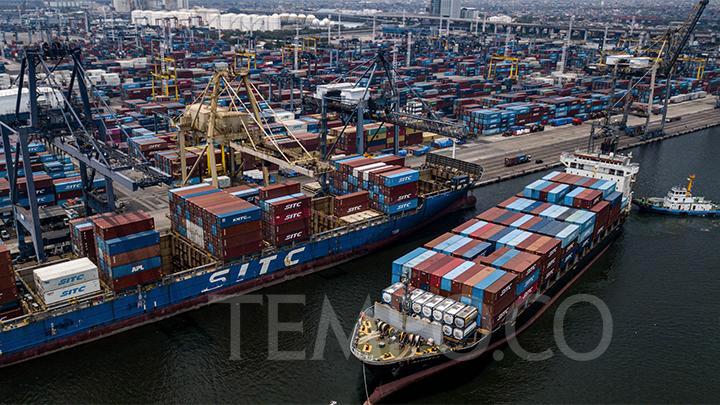Rupiah Depreciation Has Not Hurt Investment Flow
Translator
Editor
Rabu, 26 Agustus 2015 20:02 WIB

TEMPO.CO, Jakarta - The recent depreciation of the rupiah currency against the U.S. dollar has so far not hampered the flow of investment in the country.
Currently pegged at Rp12,500 against the U.S. dollar in the revised 2015 state budget, the rupiah has continued to weaken since early this year from about Rp12,580 per U.S. dollar to Rp14,000 per U.S. dollar. Yet the deprecation has not significantly affected investment in the country.
"We do not see yet the impact of the rupiahs depreciation on investment. However, it affects the real sector as demand is likely to drop", Franky Sibarani, the head of the Capital Investment Coordinating Board (BKPM), said in Jakarta on Tuesday.
Since the first semester of this year, the rupiahs depreciation has had no direct impact on the flow of investment. Investors are even trying to take advantage of the rupiah weakening by improving performance and their exports. That is a positive aspect of the rupiah depreciation.
"Data shows that during the first semester of the year, realization of investment rose by 16.6 percent. The realization of investment in the steel industry jumped 100 percent in the first semester," Sibarani pointed out.
BKPM has set an investment target of Rp519.5 trillion in 2015 and Rp594.8trillion in 2016, or up by 14.5 percent.
Sibarani said investment realization during the first semester of 2015 had reached 50 percent of the targeted Rp519.5 trillion. The 14.5 percent increase in the investment projection in 2016 is aimed at supporting the governments economic growth target set at 5.5 percent for 2016.
The BKPM chief noted that of the Rp594.8 trillion targeted for 2016, about Rp386.4 trillion is expected to come from foreign investment and Rp208.4 trillion from domestic investment.
He explained that the secondary sector or processing industries, are also expected to contribute Rp313.5 trillion, or about 52.7 percent.
The tertiary sector, which includes infrastructure, is projected to contribute Rp183.7 trillion, or 30.9 percent, while the primary sector, or commodities, are expected to chip in with Rp97.6 trillion, or 16.4 percent.
Sibarani remained optimistic that investment will support economic transformation from a consumption-based to a production-supported economy.
"The realization of investment that focuses on infrastructure and processing industries will support the creation of production-based economic fundamentals", he pointed out.
In order to achieve its goals, the BKPM is focusing on five sectors as investment targets: infrastructure, agriculture, industry, maritime, and tourism.
"The BKPM will also monitor ongoing investment projects to ensure that they enter their commercial production phases based on plans, and have a greater impact on the economy," Sibarani remarked.
He said that amidst the weakening of the rupiah, numerous industries had even aggressively expanded their business after seeing opportunities to improve their export performance.
Of the investment projects it was monitoring, BKPM had recently inspected 54 and found that they had export potential worth up to US$3.4 billion.
The BKPM chief said that even though rupiah deprecation could disturb production as it hampers the import of raw materials and capital goods, the realization of investment at home would continue to flow.
Sibarani pointed out that amidst the upward trend in the weakening of the rupiah; the board had recorded numerous investment realizations since the first semester of this year. At present, at least five cement industries were under construction. The same thing had also happened with manufacturing industries for steel and textile production.
"Investment is different from others in the real conditions now. Investment in cement and steel industries are adversely making expansions", he said.
A number of industries are even being encouraged to become more expansive after the loopholes in the rupiah depreciation were revealed. The projects have export potential worth up to US$3.4 billion.
"It covers different projects such as those for the production of garment, rubber, fisheries and others," Sibarani remarked.
Since Monday and Tuesday, the rupiah's exchange rate hovered at the Rp14,000 range, far from the Rp12,500 set in the revised state budget this year.
On Tuesday morning, the rupiah exchange rate weakened by 25 points to Rp14,020 per U.S. dollar from Rp13,995. The 14,000 level is described by analysts as a psychological level that raised concerns, particularly among financial institutions.
ANTARA




















